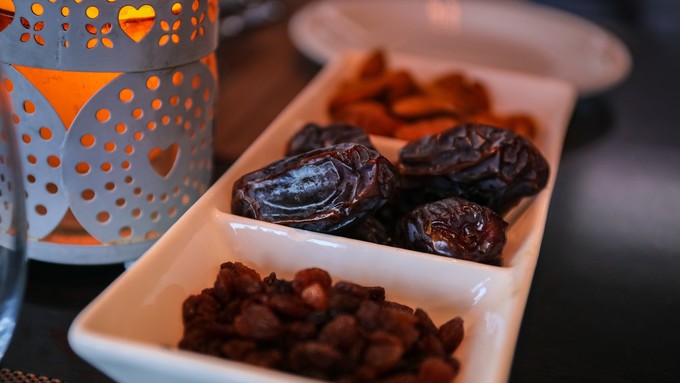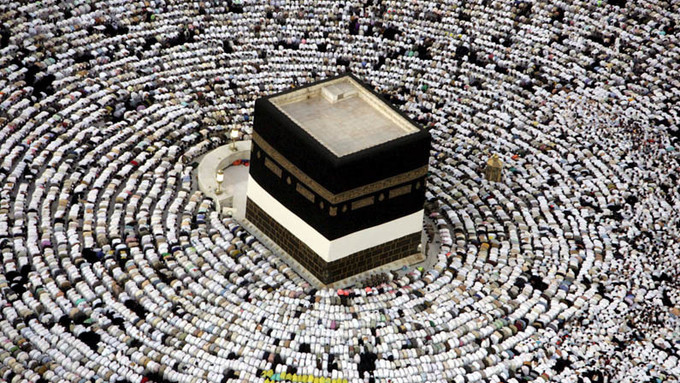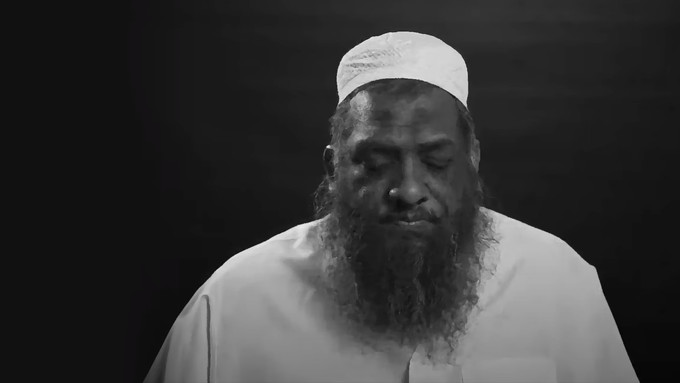Hamrā’ al-Asad: Three Ways to Face Defeat
The Story:
The Prophet ﷺ was bleeding, and his companions were exhausted and wounded. Some had lost limbs, others were bruised. They were devastated by the cruel and crude mutilation of their beloved dead. It had been a harrowing battle. The cry had gone out that the Prophet ﷺ had been killed — and then for a while he almost was. They stumbled back to Medina and then spent the night guarding the entrance to the city and standing watch at the door of the Prophet ﷺ for fear of imminent and deadly attack.
Abu Sufyan chided his army for not finishing their job. He mocked them for leaving the Messenger alive and returning without captives. He encouraged the Quraysh to return to Medina and exterminate the wounded Muslims.
News reached our beloved and exhausted Prophet ﷺ of Abu Sufyan’s plans, and he called on Bilal to rally all those who had witnessed Uhud the day before to march with him to Hamrā’ al-Asad and await the return of Quraysh.
The only Muslims invited on this frightening trip were those who had experienced Uhud the day before — the wounded, the exhausted, the defeated. The Prophet ﷺ allowed only one person to accompany them who had not been at Uhud, Jabir b. Abdullah, and this was because he had stayed behind to care for his seven (or nine) sisters while his father went to Uhud. He asked permission to join them, and the Prophet ﷺ granted it.
They went out to Hamra’ al Asad and set up camp, lighting 500 fires so they could be seen from a distance.
Abu Sufyan met up with Ma’bad ibn Abi Ma’ bad al-Khuza’a, who was a polytheist at that time, and asked him about the Muslims. Ma’bad told him that they had come out in great strength and vehemence. So, Abu Sufyan changed his mind about attacking the Muslims again and returned to Mecca.
The Prophet ﷺ stayed there for three nights and then returned to Medina.
The Lessons:
This little known ghazwa gives us a glimpse into the leadership of Prophet Muhammad ﷺ. He reaches forward to us today with lessons of the power of shared experience, the import of women in community, and the power of a show of strength.
1. The Power of Shared Experiences
The Prophet ﷺ teaches us that our shared experiences matter. In calling only the people of Uhud to the battle, he called for those who could understand one another, uplift and support each other. He left behind those who had deserted the army, those who did not come out, and anyone else who did not participate in Uhud, even if they had valid reasons not to.
One of the companions described his experience on that day, “A brother of mine and I witnessed Uhud with the Messenger of Allah ﷺ. We returned wounded. When the caller of the Messenger called out for departure in pursuit of the enemy, I said to my brother or he said to me, ‘Are we to miss a battle with the Messenger of God? By God we had not an animal to ride, and we still had serious wounds, yet we departed with the Messenger of God. My wounds were lighter than his, so if he was overcome, I carried him for a time, and then he would walk for a time until we reached the place where the Muslims had halted.”
They shared pain and understood one another. They helped and supported one another.
In our day and age, sometimes victims of trauma and abuse — whether domestic violence, spiritual abuse, or war — can feel dismissed by the larger community. They can be told “Well that isn’t as important as a, b, or c right now” and this can add to the pain. Their cries for help can be drowned in agendas, power plays, and language games. But when we find people who have experienced our pain, people who will take us seriously, people who have shared our grief — it is here that we find strength. And it is here that together we can be heard.
Looking at the ghazwa of Hamrā’ al-Asad we recognize the importance of standing together in our shared experiences.
- Victims of abuse can stand together to be heard — not unlike the #Metoo hashtag which, though painful, demonstrated to women everywhere that they were not alone.
- Brothers and sisters who are looked over for speaking positions and board seats, not because they are unqualified, but because they are the ‘wrong’ color or ethnicity, have found a friend in the Muslim Anti-Racism Collaborative (MuslimARC). While this organization focuses on the United States, it is one excellent example for Muslims everywhere that when we come together in our shared experiences, we can make change.
- When Hind Makki started her blog, ‘Side Entrance’, women everywhere had a place to speak about their disturbing and disappointing Mosque experiences. This virtual ‘coming together’ developed into a movement to bring back the Prophetic mosque and an open letter from the Islamic Society of North America, signed by dozens of scholars, to provide open prayer space for all worshippers.
- Muslims who suffer at the hands of Islamophobes on airplanes, at work, or at school often use social media platforms like Twitter ® to amplify their voices. A few retweets, and companies begin to listen.
- Men who follow in the Sunnah of the Prophet ﷺ and live ethical and respectful lives can decide not to stand with their friends who abuse, betray, and/or denigrate women. Instead of hiding the secret wives of their friends, or being silent at obvious betrayal, they can speak. In this way, they stand with women and allow for a new shared experience of trust to be born. When Tala’s husband betrayed her, she was devastated, but the salt in her wounds was knowing that his (religious) friends had known for some time, and had remained in acquiescent silence.
As the Prophet ﷺ called upon the Muslims of Uhud to stand together and march toward danger as one body, in order to achieve safety and resolve the immediate danger of war — Muslims today must stand with likeminded brothers and sisters and march toward that which is uncomfortable, in order to achieve beauty and justice and to resolve the immediate cultural problems of our time.
2. Women matter
The battle of Uhud is famous for the military courage of many women: the strength of Nusaiba bnt Ka’ab (may Allah be pleased with her) as she defended our beloved Messenger, the gentle nursing of Fatima (may Allah be pleased with her) when she cauterized her father’s wounds, and the brave mourning of Safiyya bnt Abdul Muttalib (may Allah be pleased with her) when she bore witness to her brother Hamza’s death.
But women are not only important in their presence in the battlefield. Indeed, their presence in community, at home, and in their families, is also valuable. It is interesting to note that the only Muslim man who did not participate in Uhud, and yet was allowed to come with them to Hamrā’ al–Asad, was one who had been caring for his sisters.
We do not know the details about why he was left behind to care for them, just that his father had told him to stay behind in order to do so. And when he came to the Prophet ﷺ to seek permission to go forth with them the next day, he was allowed.
This reminds me of Uthman bn Affan’s absence from Badr. He was caring for his wife, Ruqayya, who died before the army returned.
In both cases we have healthy and strong companions who did not go to the battle because they were needed at home.
I think of the loneliness of many women.
- The married women who feel that the burden of child care and housework lies solely on them.
- The mothers who long for a regular visit from their sons (and daughters).
- The daughters who, when their fathers betray the family, choosing their nafs over the people Allah has put in their care, they can grow up feeling that they themselves are not worthy of the loyalty of any man.
Our Prophet ﷺ demonstrated time and again the importance of men in the lives of women. He called on men to ‘see’ women, to care for them, to uplift them. That this has been misused and abused in modern culture to mean control or use is an insult to the life and person of Prophet Muhammad ﷺ.
Our beloved Prophet ﷺ allowed Jabir to reap the benefits of joining the Muslims at Hamrā’ al Asad because his staying behind from Uhud was excused. ‘Being there’ for the women in our lives is important.
3. A Show of Strength is a Victory
When the Muslims arrived at Hamrā’ al-Asad they lit 500 fires. From afar it looked like a huge and healthy army had come forth from Medina. It was this presence that struck fear into the heart of Abu Sufyan and made him change his mind about attacking them ‘while they were down’.
It is hard to think about lighting fires, about building, and about proactive strategy and work when we are frustrated, exhausted and defeated. But here the Prophet ﷺ demonstrates its importance.
How do we light 500 fires?
- Show up at events. It is of primary importance that Muslims show up at community events. We have held events here in Minnesota in collaboration with the National Council of Jewish women, and had 2 or 3 Muslim women to every 7 -8 Jewish women. We need to show up if we want to push back on today’s cultural enemy: Islamophobia
- Take a class. There is no excuse for anyone with a high-school degree to be completely ignorant of fiqh. Many spiritual abusers trick women by telling them ‘they know more about fiqh then them’. Women and youth, light your fire of faith with knowledge and take a class.
- Pray. Pray at home. Pray at school. Pray at work. Muslims are people of prayer. You may feel scared to pray at school or work, and so miss it, or make it up later. But we will never find peace and joyful faith as long as we cower in fear at someone thinking ‘that’s weird’ – so light those fires with your prayers.
- Contribute to community: Be good and kind to one another. Our elderly are lonely. Find them and visit them. Our children are confused. Find them and mentor them. Our mosques need a good scrub. Find them and bring a bucket. Get busy lighting the fire of contributing to community.
Our Own Sense of Defeat
For the last year it felt like Uhud in our Muslim community. One tragedy after another, it has been painful and downright depressing.
If we can imitate the Prophet ﷺ at Hamrā’ al-Asad, we may find ourselves on the other side of the feeling of overwhelming defeat.
- Hold on to the people of shared experiences. Together we can be strong and make change.
- Women are important to community life. We need to create systems and institutions that uplift, empower, and genuinely care about and for the women in our community.
- Light the fires of strength. Show up, learn, pray wherever you are, and use your talents to build community.
May Allah (subhanahu wa ta’ala) bless us with the protection of Hamrā’ al-Asad, and bless us with strong hearts of joyous faith. Ameen.
Faith & Spirituality Related Articles

5 Practical Steps To Get You Ready for Ramadan
As Ramadan is less than a month away, we might feel we often haven't done enough to prepare for it. Here are 5 things we can do right now during Shaban to make sure that we get the most out of Ramadan. The Prophet (Peace & Blessings upon Him & His Family) supplicated,” O Allah give us the blessings of Shaban and give us the treasure of Ramadan.”

Hajj at Home: Kindling the Spirit of Arafah
Even if we are not on Hajj this year, our situation is no different. We navigate through the complexities of our daily life, immersed in the never-ending responsibilities of work and family, inundated with the intrusions of technology and social media into every minute of our lives, moving from place to place and idea to idea.
